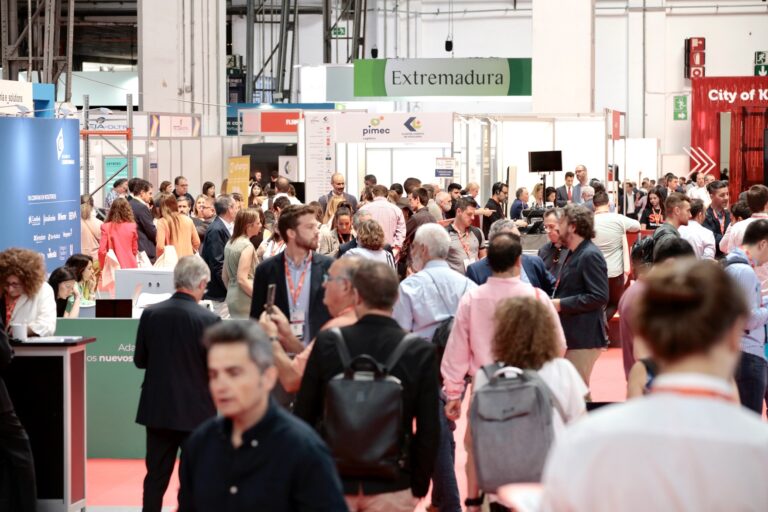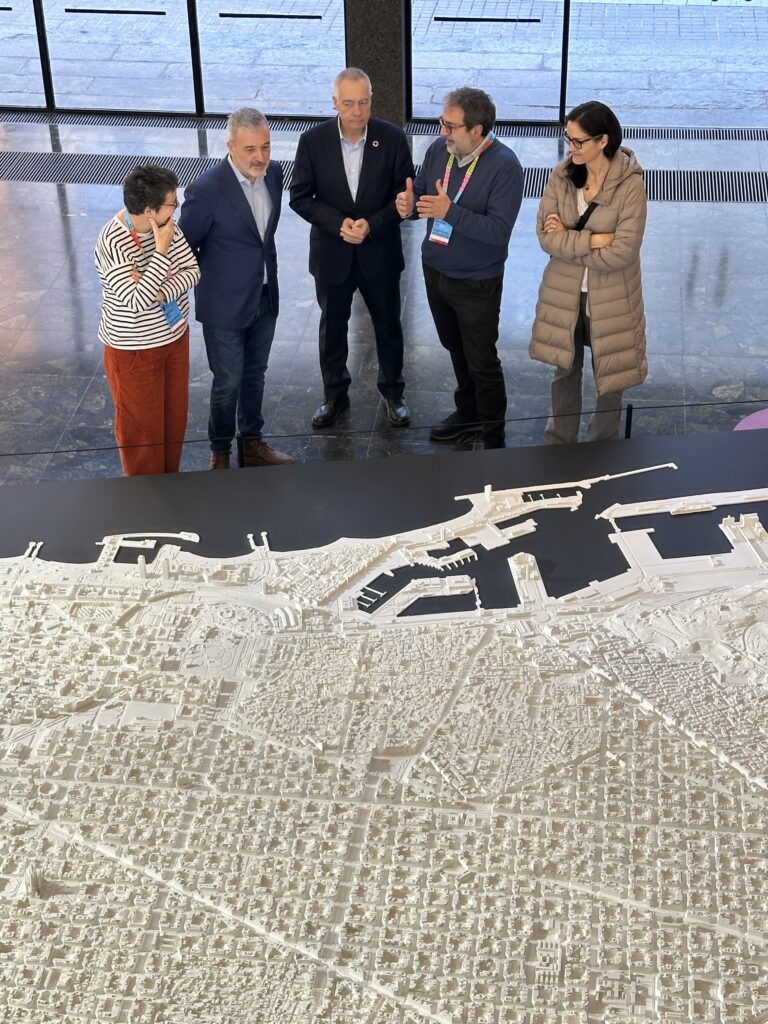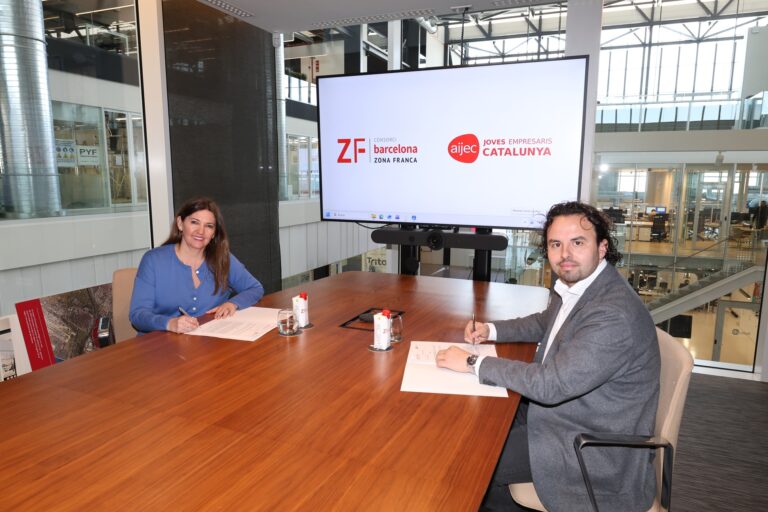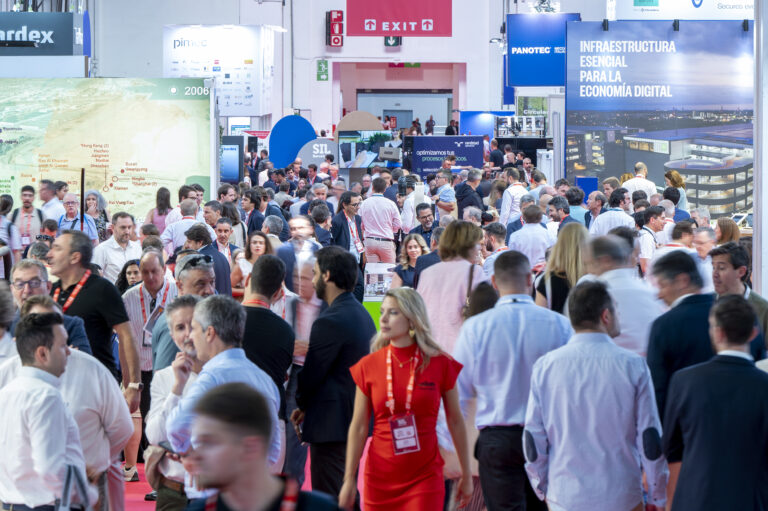SIL 2022 opens its doors vindicating the importance of logistics worldwide

31 de May de 2022
- The 22nd edition of one of the world’s largest Logistics, Transport, Intralogistics and Supply Chain trade fairs, and the benchmark in Spain, the Mediterranean and Latin America, has 30% international attendees.
- The business association PIMEC has highlighted at the fair the importance of logistics in the economy and the lack of awareness of the value of companies’ internal operations.
- The 18th edition of MedaLogistics Week has also been inaugurated this morning, where, between today and tomorrow, the transformation of the transport value chain and the role of the collaborative economy in the Mediterranean logistics sector will be discussed.
Barcelona, May 31, 2022 – The 22nd edition of the International Logistics Exhibition of Barcelona (SIL), organized by the Consorci de la Zona Franca de Barcelona (CZFB), has opened its doors with the aim of vindicating the importance of logistics worldwide. The event, which is being held in Hall 8 of the Montjuic-Plaza España exhibition center at Fira de Barcelona until June 2nd, returns with a renewed image after two years of absence due to the pandemic context.
SIL Barcelona will once again host an International Congress with more than 300 international speakers, who will discuss the three economic macro-trends: innovation 4.0 and digitalization, sustainability and talent, 80 sessions and 4 stages (Business Transformation, Industry & Logistics, eDelivery and Global Logistics).
Broad international presence
The 22nd edition of one of the world’s largest trade fairs for Logistics, Transport, Intralogistics and Supply Chain, and the benchmark in Spain, the Mediterranean and Latin America, reaches 30% of international companies. In this sense, it counts with the participation of companies from Germany, France, China, Argentina, Italy, Mexico, Taiwan, Peru, Slovakia, Ecuador, Colombia, Portugal, the United Kingdom, Chile, the Netherlands, Romania and Poland.
Blanca Sorigué, general manager of CZFB and SIL, emphasizes that “the meeting will bring together companies, institutions and international experts from the main sectors of the industry, such as logistics, transportation, ports, free trade zones and infrastructure, among others”.
New technologies, highlights of the day
On the first morning of the SIL Congress, a wide variety of topics have been discussed, all under the concept “Logistics and e-commerce: key drivers of the economy”. Among them, in the Business Transformation stage, a session to address the metaverse, NFT and loyalty programs in Retail with experts in the field such as Omar Moreno, CEO and co-founder of Wohee; Lucas Guasch, CEO and co-founder of Alpha Growth; Adrià Martínez, strategic Project Manager of Beauty Cluster; and Toni Mateos, founder and CTO of Freeverse, under the moderation of Ana Guasch, innovation and new technologies consultant.
In the case of the Logistics and Industry stage, the session on digital transformation to achieve efficient and competitive logistics chains has been a highlight, with the participation of important industry experts such as Nuria Piñol, Customer Service Manager at Nestlé Spain; Pere Roca, General Manager of Districenter; Ana Isabel González, Supply Chain Senior Director at Procter & Gamble and president of CEL; Mariano Pérez, Front End Operations Manager at Europastry; and Romain Cical, Supply Chain Director at NTT Data, who acted as moderator.
New edition of the MedaLogistics Week
During the morning, the 18th edition of the MedaLogistics Week has also taken place, with the aim to address the post-pandemic situation, boost the importance of the Mediterranean region in the global economy as a whole and address the sustainability needs of the logistics and transport sector in the Mediterranean in accordance with the United Nations SDGs.
Pere Navarro, special delegate of the State to the CZFB, has highlighted that “the logistics sector is at a key moment for its development. Therefore, at MedaLogistics Week, we want to enhance the strategic position of the Mediterranean region in this booming sector.” “We want to establish alliances to strengthen our role as a business bridge between Europe, America, Africa and the Mediterranean countries.”, has added Navarro.
On the other hand, Ahmed El Wakil, ASCAME’s president, has pointed out that “Collaboration is not a new concept for the Logistic industry, but it has never really gained attraction. It is urgent to unleash the economic potential of the Mediterranean region. We must bet on integration and build a unified Mediterranean economic and financial strategy that promotes investment, construction, modernization and management of essential infrastructures and that allows growth and competition with other regions.”. El Wakil has also stressed that “it is essential to create an efficient network of land, air and maritime communications and to promote multimodal corridors, especially the Mediterranean corridor. And this can only become a reality with a regional alliance and its partnership with Europe”.
PIMEC highlights the weight of logistics in the Catalan economy
PIMEC has highlighted the weight of the logistics sector in the Catalan economy and has the lack of knowledge of the value of the internal operations of companies. This was stated by the president of PIMEC Logística – Clúster Logístico de Cataluña, Ignasi Sayol, who has presented at a press conference during the International Logistics Exhibition (SIL) the studies “Contribution of logistics to the economy” and “Productivity and competitiveness of logistics”.
Sayol has stressed that “we are talking about a weight of logistics in the Catalan economy around 11% of GDP and close to 28,000 million euros”. He has also presented the results of the study on productivity and competitiveness, which they have carried out for the first time, highlighting the temporal evolution of productivity per employee between 2010 and 2019: “Measured in terms of GVA per employee, it went from 49,152 euros in 2010 to 62,688 euros in 2019, which represents an accumulated increase of 27.5%”.
On the temporal evolution of personnel costs per employee, the president of PIMEC Logística – Clúster Logístico de Cataluña has stated that, between 2010 and 2019, they went from 36,469 euros in 2010 to 42,719 euros in 2019 in terms of employee remuneration per job, which represents an accumulated increase of 17.1%.



